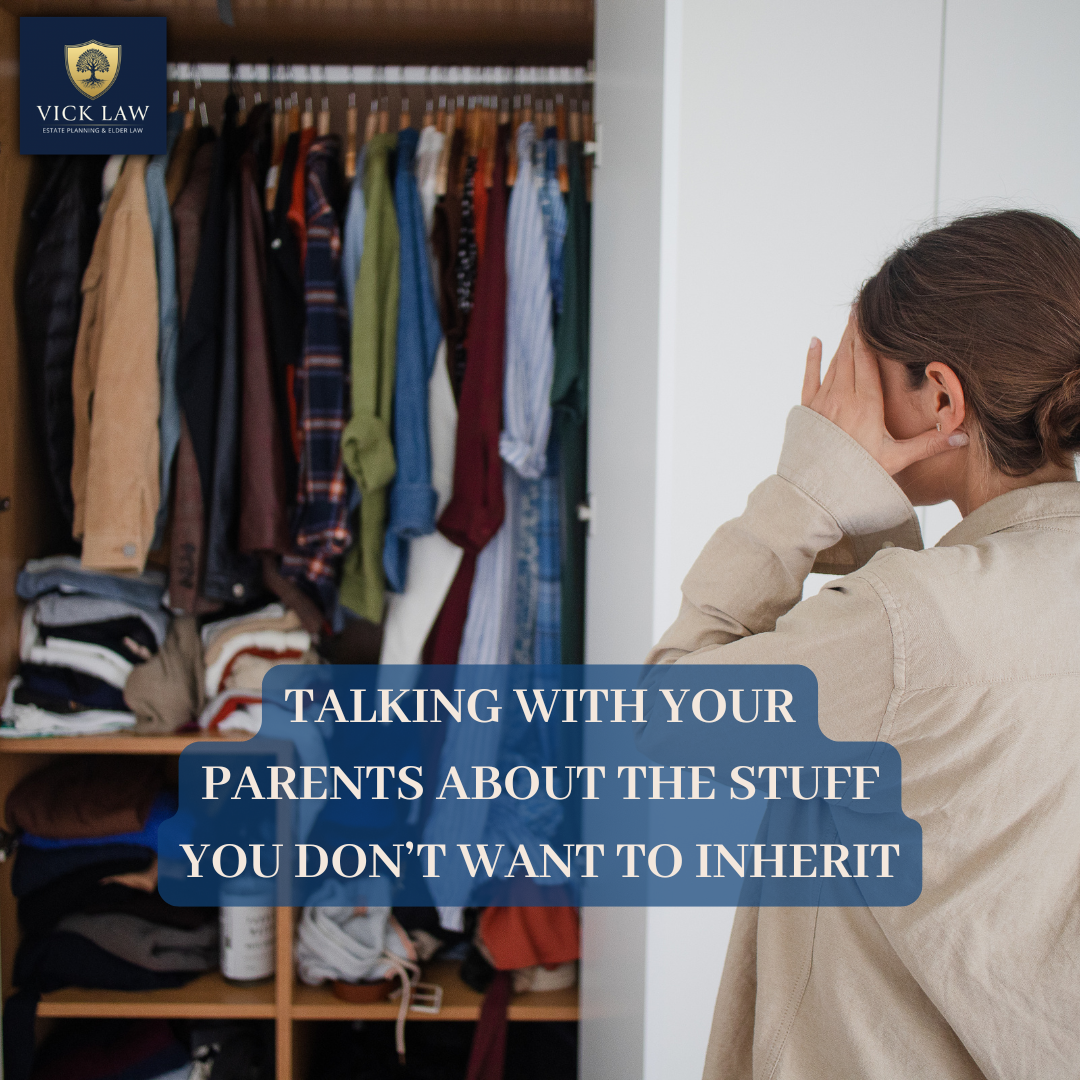Many families' estate planning conversations focus on wills, trusts and financial assets. However, another conversation that often gets overlooked: what to do with your parents’ belongings. From furniture and fine china to photo albums and collections, these items carry emotional weight—and often cause logistical headaches for the next generation.
Talking with your parents about the “stuff” they plan to leave behind can be uncomfortable. However, the reality is that many adult children don’t want to inherit it, and parents are often unaware of that. Open communication helps families make thoughtful decisions, avoid conflict, and reduce the emotional and physical toll of managing a loved one’s estate after they’re gone.
Why Inheritance Conversations Matter
Most people accumulate a lifetime of possessions. Some items may have sentimental value, while others—like dining sets, knick-knacks, or bulky furniture—may not fit into the lives or homes of adult children. Yet many parents assume that passing these things down is an act of love or tradition.
The disconnect often stems from generational differences. What one generation views as heirlooms, the next may view as clutter. If these expectations aren’t addressed during life, they often turn into stress after death, when grieving children must sort through rooms of items, often under tight time constraints.
Discussing these issues now helps clarify which items are significant and which can be sold, donated, or discarded without guilt.
Starting the Conversation
Timing is key. Choose a quiet moment—perhaps during an estate planning meeting or after discussing other plans. Express appreciation for your parents’ intentions and explain that you’d like to understand their wishes more clearly while they’re here to share them.
Rather than saying, “I don’t want any of this,” focus on curiosity and clarity. Ask questions like:
- Are there items you’d especially like me or others to have?
- What’s the story behind this piece?
- Would you be open to sorting through things together now?
Framing the conversation with open-ended questions shows respect, while inviting collaboration.
How to Organize and Pass Down Family Heirlooms
For items of true sentimental or financial value—jewelry, art, family photographs—it helps to create an inventory and document who will receive what. An inventory can stand as a personal property memorandum alongside a will. Using both documents can reduce future confusion or disputes among heirs.
When it comes to less significant items, ask your parents how they’d feel about donating or gifting things now. Sometimes, downsizing can bring relief, and they may enjoy seeing items go to good homes.
If your parents are hesitant, take small steps. Suggest choosing a few things to pass along each year or tackling one room at a time. The process can also lead to meaningful conversations and the rediscovery of family history.
Manage Unwanted Inheritances through Estate Planning
The goal of estate planning is to honor someone’s life, relationships and values. Distributing personal belongings is essential.
Encouraging your parents to create a will or trust that addresses their personal property can prevent disagreements later. If multiple children are involved, consider a system for dividing items, such as taking turns choosing one.
It’s also wise to involve an estate planning attorney, especially when emotions or complexity are high. A well-structured plan gives everyone peace of mind and ensures that assets and memories are passed on with care. Book a call with Vick Law today to get the conversation going in the right direction.
Key Takeaways
- Unwanted inheritances can create stress: Talking early about personal belongings prevents confusion and reduces emotional burden.
- Generational expectations often differ: Parents may view heirlooms as valuable, while adult children may not want them.
- Open conversations build understanding: Framing the discussion with curiosity and respect leads to productive outcomes.
- Documenting property wishes prevents conflict: Personal property lists and estate plans help honor intentions and avoid disputes.
- Planning together brings peace of mind: Thoughtful conversations now create clarity, connection and less stress later on.
Reference: Cameron Huddleston (Sep. 24, 2023) "How to Talk to Your Parents About Their Stuff You Don’t Want"

